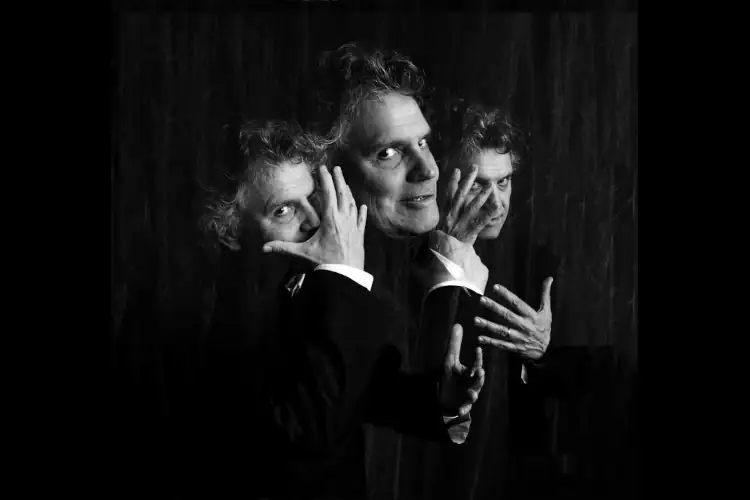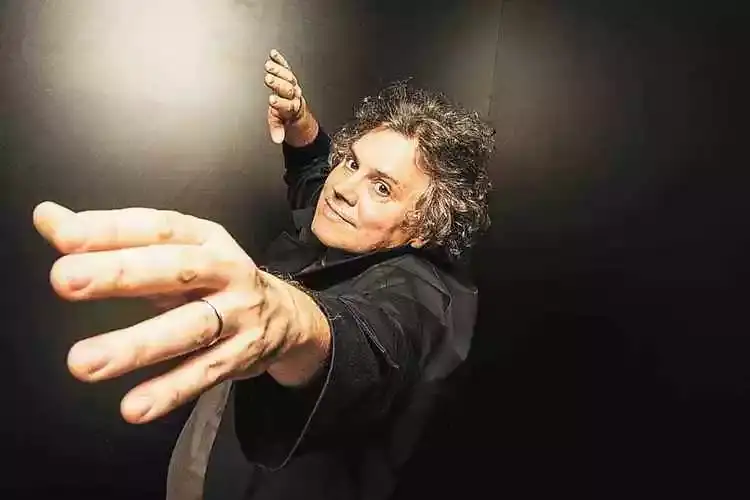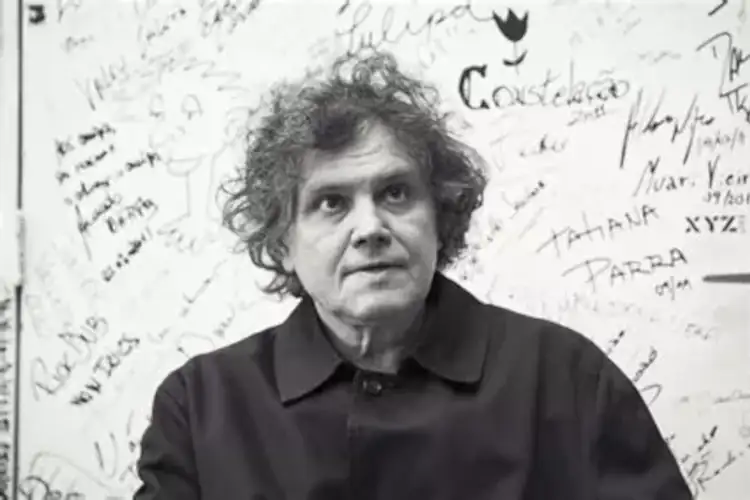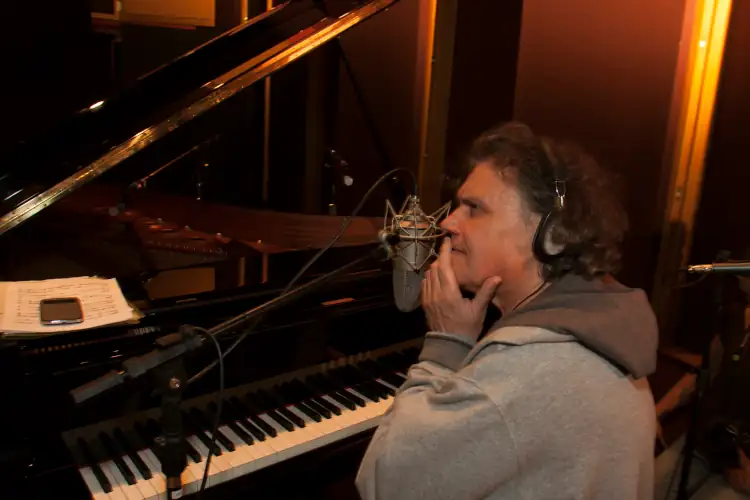Musician, actor and radio presenter, Arrigo is one of the founders of Vanguarda Paulista in the 1980s. In 1980 he released “Clara Crocodilo”, a...
more9:30 am Composition Workshop
Arrigo Barnabé – Matadouro Funchal
Taking advantage of Arrigo Barnabé’s presence at the Travessuras Culturais Festival and in partnership with the Melro Preto Association, we present the “Composition Workshop” with Arrigo Barnabé.
Using the new cultural space of Funchal city, a space itself a fusion between past and future, former slaughterhouse turned cultural space, Arrigo Barnabé, an artist himself a fusion of artistic means and musical styles, challenges us for a unique Composition Workshop.
A composer with multiple soundtracks to his credit, this multifaceted artist characterized by dodecaphonism, shares his vast experience in composition, from opera to MPB, from sacred music to the more rock side.
Date: Tuesday, November 19
Location: Cultural and Research Center of Funchal, Matadouro Street No. 4, Funchal
Registration required.
Arrigo Barnabé – Sonata para piano (Karin Fernandes, piano)
With sheet music
Taxidermia em Dois Movimentos, de Arrigo Barnabé (por OSUSP e Orquestra Errante)
During confinement
The composer presents new arrangements for the classic “Clara Crocodilo“, a 1980 album by the Brazilian who best blended the formal inventions of the classical avant-garde and the direct codes of pop culture.
Madeira Jazz Association – Melro Preto
The Madeira Jazz Association – Melro Preto (AJMMP) was born from an old dream of people linked to Jazz in Madeira, now realized. In...
moreModule 1
The use of rhythm as a conductor of discourse.
Gradual introduction to dodecaphonism (the 12-tone series as used by Arrigo Barnabé)
Composition exercises in class.
Prerequisites: Understanding of the musical writing process.
Arrigo Barnabé is an important Brazilian composer known for his experimental and innovative work. Some relevant points about him as a composer:
- His musical style combines elements of contemporary classical music with rock and Brazilian popular music.
- He uses techniques such as dodecaphonism, atonalism, and serialism in his compositions.
- He incorporates influences from composers such as Béla Bartók and Igor Stravinsky.
In his creative process, rhythm is the main element of his work, being the “engine” of his compositions. He usually starts his compositions with rhythmic ideas. He writes practically everything he composes on scores.
Some elements of his compositions:
- Dodecaphonism: Use of twelve-tone series in his compositions.
- Atonalism: Atonal approach in melodic and harmonic construction.
- Serialism: Application of serial techniques in composition.
- Mixture of classical and popular elements: Combination of 20th-century classical music procedures with elements of Brazilian popular music (MPB).
- Urban prosody: Use of prosody very close to the urban speech of his time in the lyrics.
- Urban themes: Lyrics that address life in big cities, often critically.
- Rock influences: Incorporation of rock elements, especially psychedelic and progressive rock.
- Comic book aesthetics: Influence of comic book language and aesthetics in some compositions.
- Spoken singing: Use of vocal techniques that blend singing and speech.
- Sound experimentalism: Search for unconventional sonorities and musical structures.
- Modular composition: Use of composition techniques based on modules, influenced by his architecture studies.
These elements contribute to the innovative and experimental character of Arrigo Barnabé’s music, making him an important figure in the Brazilian musical avant-garde, especially in the movement known as the São Paulo Avant-garde.




